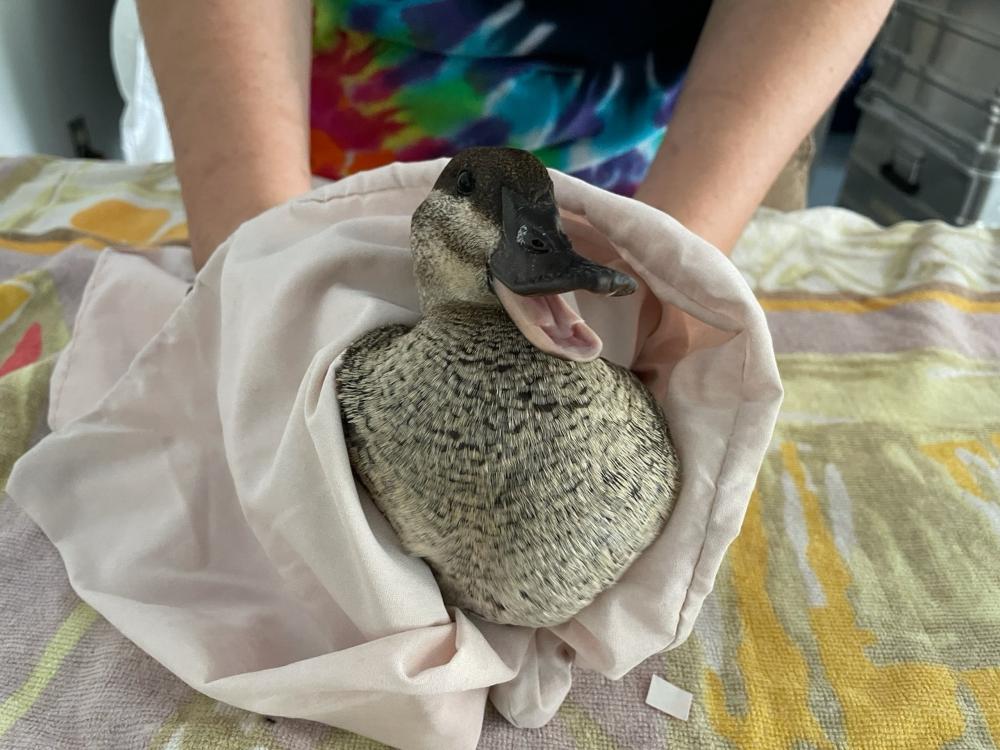Updates
Look to this page for information on when our disaster response programs are activated. To learn more about our disaster training and response programs, please visit this page.

January 9, 2025
The California Veterinary Emergency Response Team (CVET) helps to prepare the state for disasters as well as coordinate statewide veterinary responses during such incidents when requested. CVET has moved to “on alert” status and is at the ready to provide veterinary assistance as needed via coordination or clinical care, but so far has not been activated to Southern California because regional programs there have been able to care for animals injured in the ongoing fires. CVET has been in regular and ongoing communication with local agencies, animal response organizations, and the California Office of Emergency Services.
Koret Shelter Medicine Program provides animal shelters with support and guidelines for housing animals safely and keeping them healthy while they are temporarily displaced from their homes, including natural disasters. The program has dispersed $37M in grant funding to California animal shelters focused on building capacity, diverting healthy animals away from shelter intake, and reserving space and resources for animals in need of urgent care—like those evacuated or impacted by the fires. Our program hosts bi-weekly calls for all California shelters, creating a space for the animal sheltering community to come together and triage during crisis.
Other Resources:
- Animal Evacuation Shelters
- County of Los Angeles – Latest emergency updates and alerts
- Los Angeles Fire Department – Latest fire alerts
- CA Department of Forestry and Fire Protection (Cal Fire) – Monitor wildfire activity
- CA Wildfire Forecast and Threat Intelligence Integration Center – Monitor wildfire activity
- Caltrans Quickmap – Monitor updated road closures and travel advisories
- National Weather Service – Updated weather conditions
- Cal OES News – Latest news and updates from Cal OES
- If you are interested in making a financial contribution, please consider Philanthropy California. There are numerous vetted disaster relief funds listed on their website for organizations assisting response and recovery efforts.

August 19, 2024
The School of Veterinary Medicine’s California Veterinary Emergency Team treated 100 small animals and 64 large animals at the Park Fire, with one animal being transported to the UC Davis veterinary hospital for further treatment.

July 26, 2024
The California Veterinary Emergency Response team has been activated for a response to the Park Fire incident in Butte and Tehama counties near Chico, CA. They will be assessing the animal shelter veterinary needs.
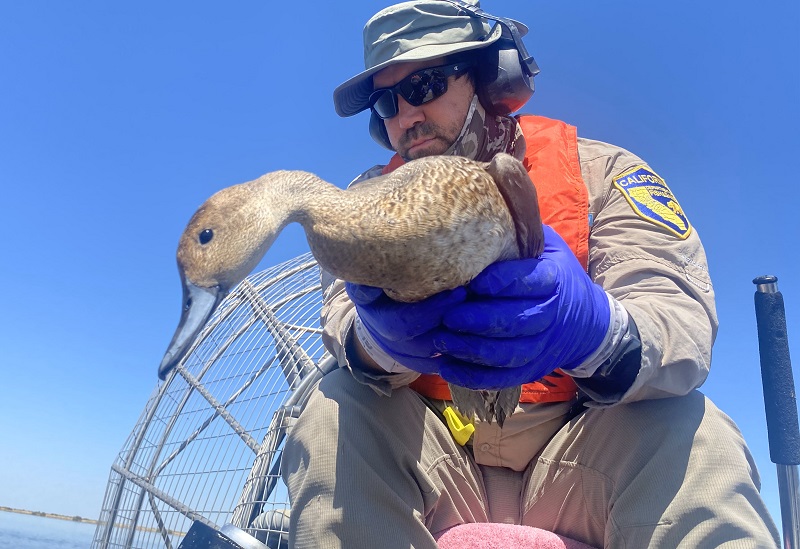
September 8, 2023
The California Department of Fish and Wildlife, joined by state, federal and non-governmental organization partners, has intensified its response to help birds affected by avian botulism at Tulare Lake, contracting with the expert Oiled Wildlife Care Network to provide emergency veterinary care. Avian botulism is caused by a toxin-producing bacteria that occurs naturally in bodies of water like Tulare Lake.
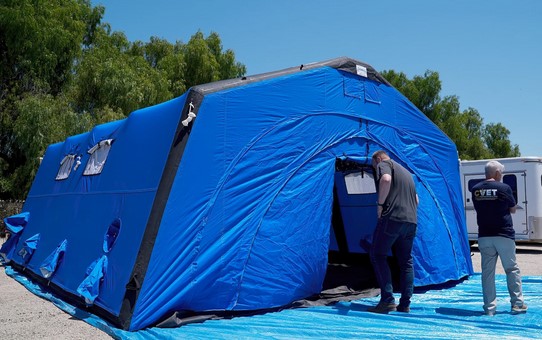
June 28, 2023
Administered by the One Health Institute at the University of California, Davis, School of Veterinary Medicine, the California Veterinary Emergency Team supports and trains a network of government agencies and organizations to aid domestic animals and livestock during emergencies. This fire season, CVET is ready to assist counties across the state with veterinary rescue and care when local resources have been exhausted and state assistance is needed.
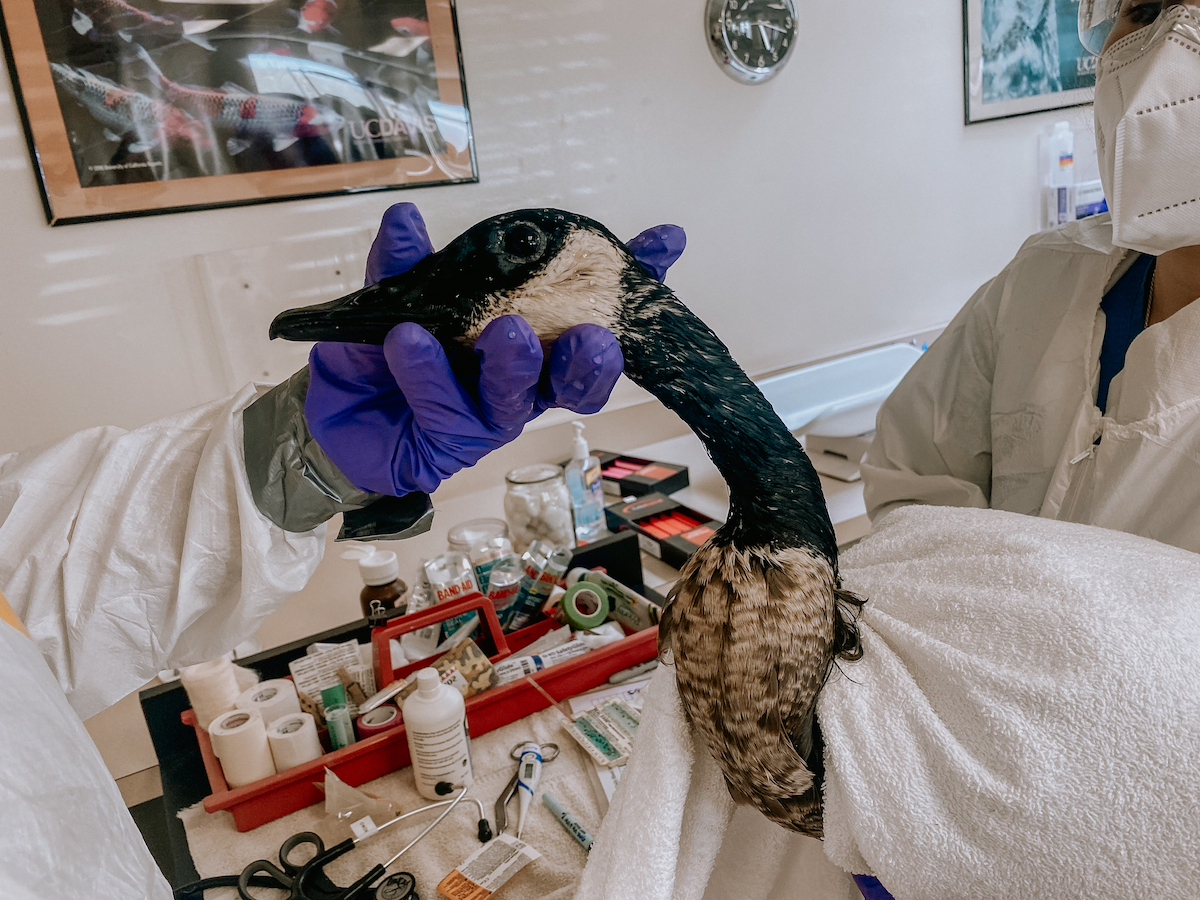
November 15, 2022
The Oiled Wildlife Care Network (OWCN) has been activated for a diesel release incident in Natomas, Sacramento. OWCN field teams in the wildlife branch recovered a total of 5 oiled Canada geese at the Tanzanite Incident spill site.
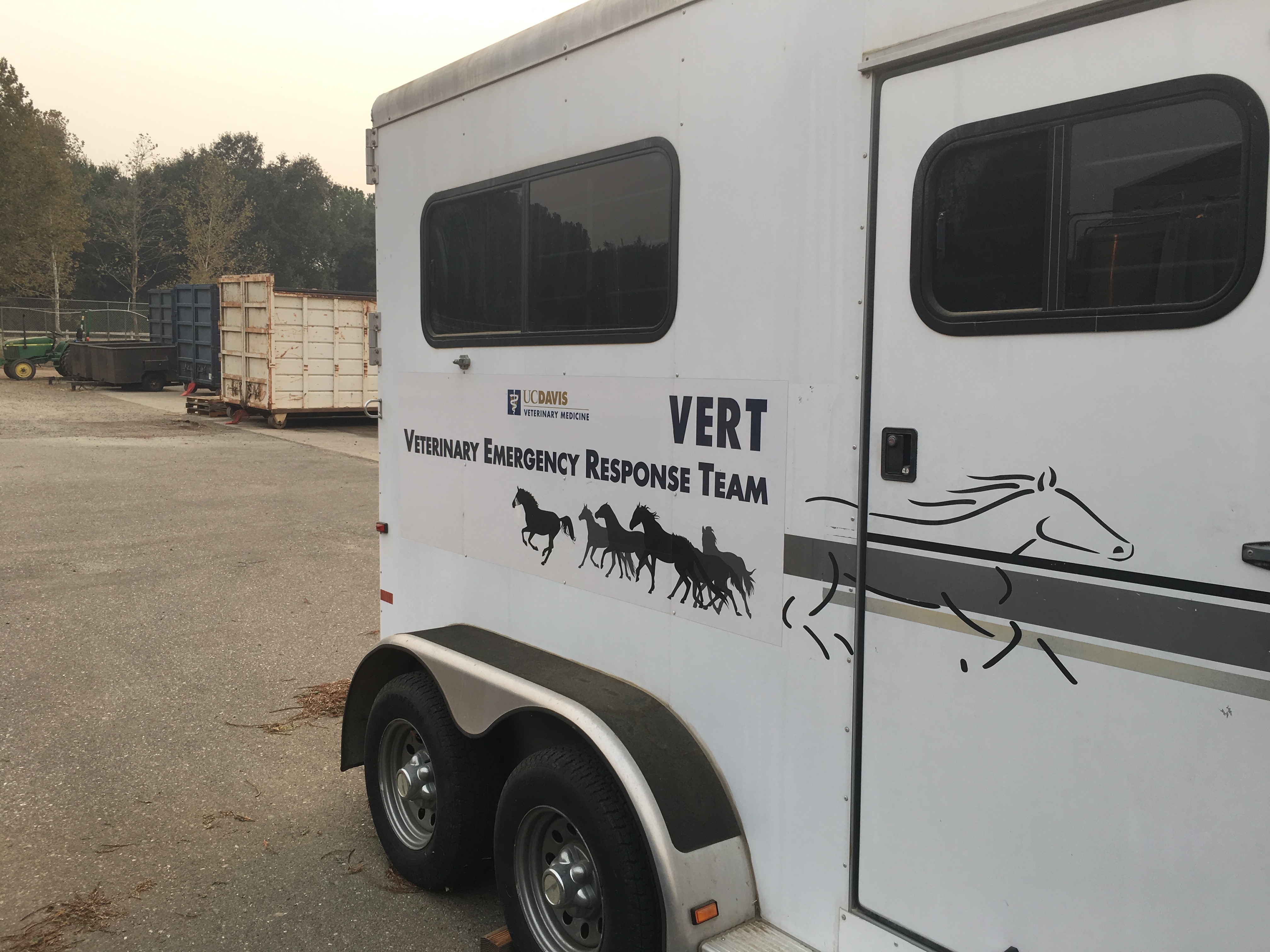
September 15, 2022
The UC Davis Veterinary Emergency Response Team responded to the Mosquito Fire east of Sacramento today, evaluating animals at evacuation centers established in the area. Additionally, two horses were brought to the UC Davis veterinary hospital for evaluation. One sustained an eye injury and the other injured its lower leg during evacuation efforts. Both were treated as outpatients and were released today.
October 18, 2021
Responders with the UC Davis Oiled Wildlife Care Network continue to provide veterinary care for animals impacted by the Orange County oil spill. To date, 32 live birds and 1 live mammal have been recovered.
View the Latest Updates
October 3, 2021
Oiled Wildlife Care Network has activated in Huntington Beach and is recovering animals caught in the oil spill from an offshore rig that has expanded in the water between the city’s pier and Newport Beach.
Full Story
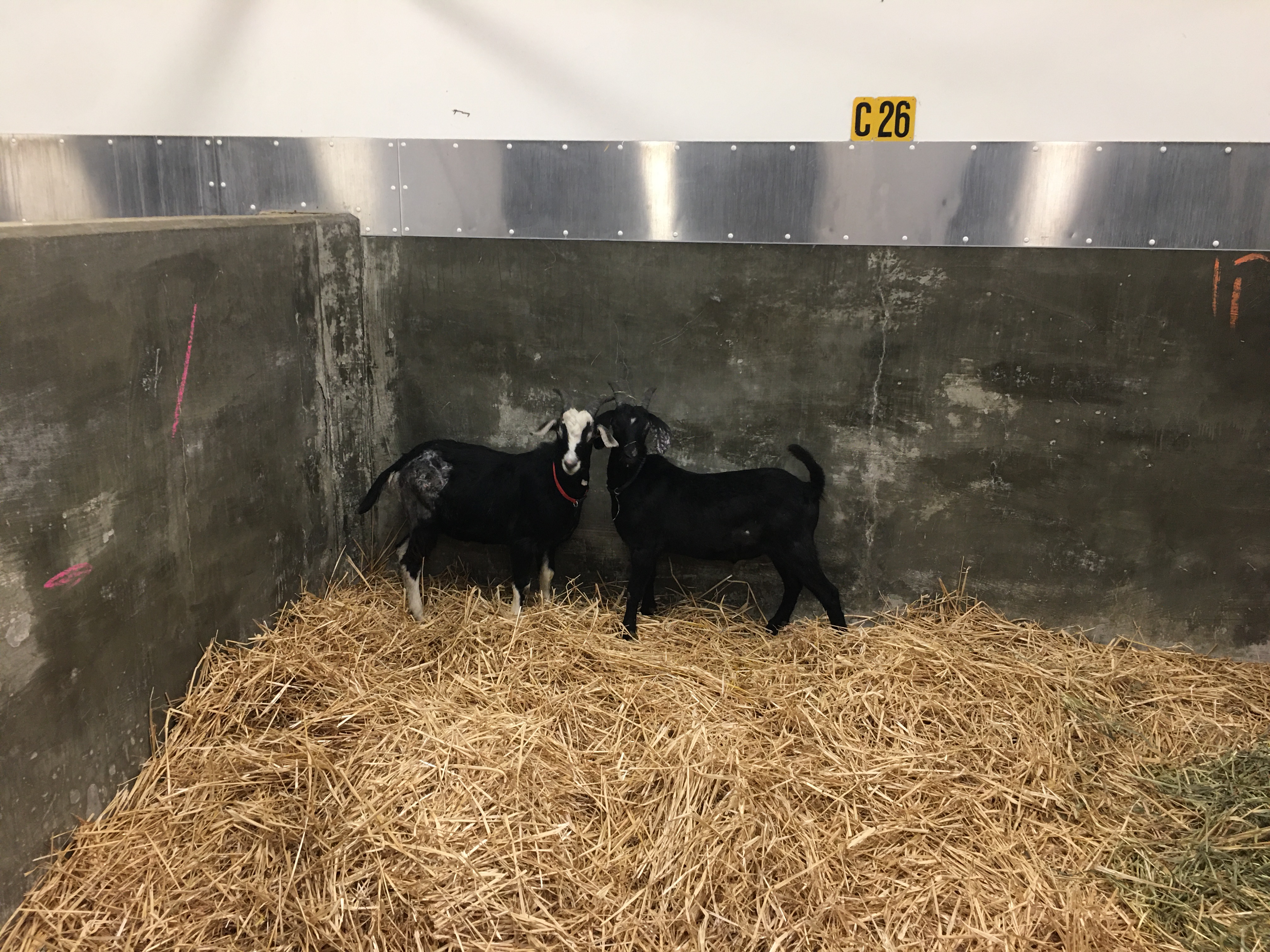
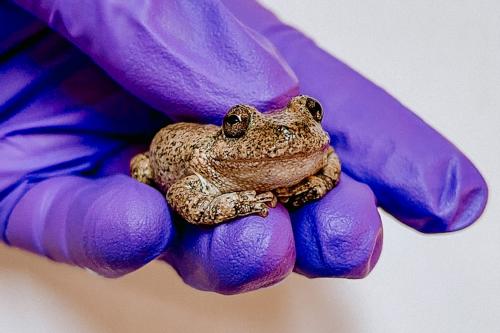
August 30, 2021
UC Davis’ Oiled Wildlife Care Network responded to the Toro Canyon Creek oil spill in Santa Barbara County, where a natural seepage of oil emerged from a nearly 150-year-old well. OWCN was able to clean 92 frogs and other animals and return them to nature.
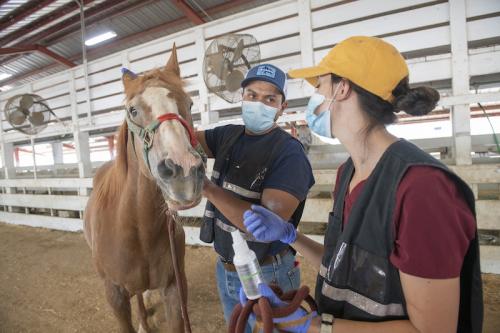
August 24, 2021
The UC Davis Veterinary Emergency Response Team deployed to Amador County to assist with animals evacuated from the Caldor Fire.
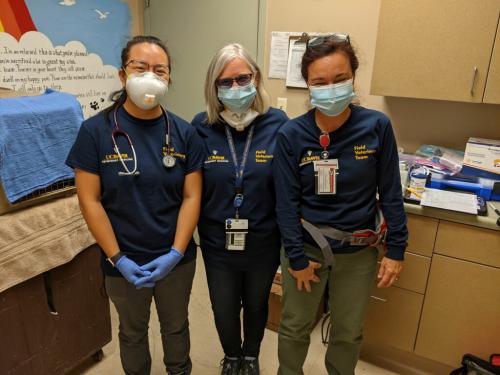
August 18, 2021
The UC Davis Veterinary Emergency Response Team deployed to Plumas County to assist with animals evacuated from the Dixie Fire.
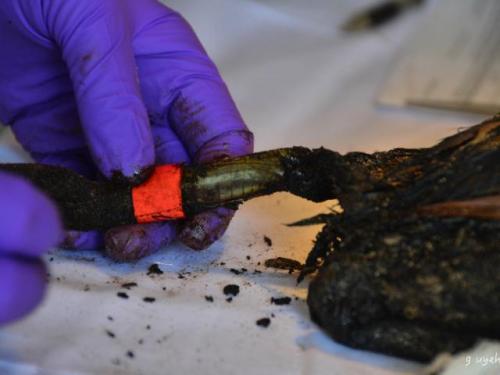
August 13, 2021
Santa Barbara County and the California Department of Fish and Wildlife’s Office of Spill Prevention and Response have coordinated a cleanup at Toro Canyon Creek. The Oiled Wildlife Care Network has collected animals killed or injured by the oil. Seventeen small birds, 13 bats, and one squirrel have died. Nineteen oiled frogs and one lizard were collected alive and are receiving veterinary care.
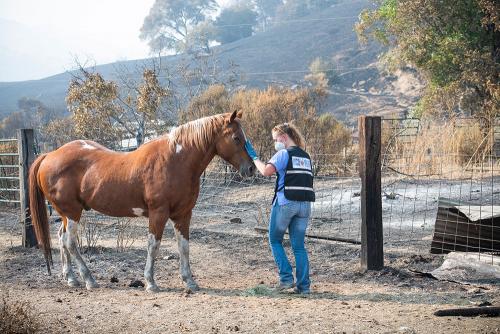
August 11, 2021
A new network is in the works to provide help to animals during emergencies. Dr. Michael Ziccardi, director of the UC Davis One Health Institute, describes the new California Veterinary Emergency Team, which will provide help to animals during emergencies such as natural disasters. (Interview begins at 29:10)
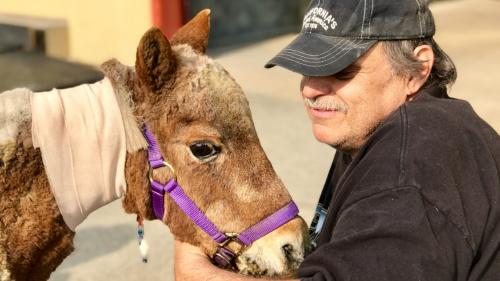
August 5, 2021
There's a new emergency program to help domestic animals and livestock during emergencies, such as wildfires, in California. It's called the California Veterinary Emergency Team. The program is being administered by UC Davis School of Veterinary Medicine.
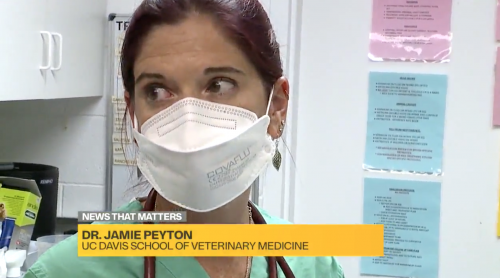
July 27, 2021
Dr. Jamie Peyton is leading the effort to treat and care for a burned bobcat at Gold Country Wildlife Rescue’s Wildlife Intake Center in Auburn, California.
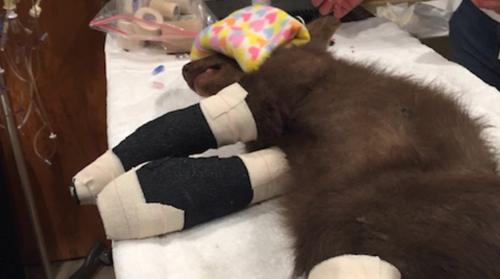
July 26, 2021
UC Davis Veterinary Medicine’s Dr. Jamie Peyton, co-lead of the Wildlife Disaster Network, is consulting on the treatment plan for a bear cub who was burned in the Tamarack Fire. The young bear may be a candidate to receive an innovative tilapia fish skin treatment to help heal his burn wounds.

